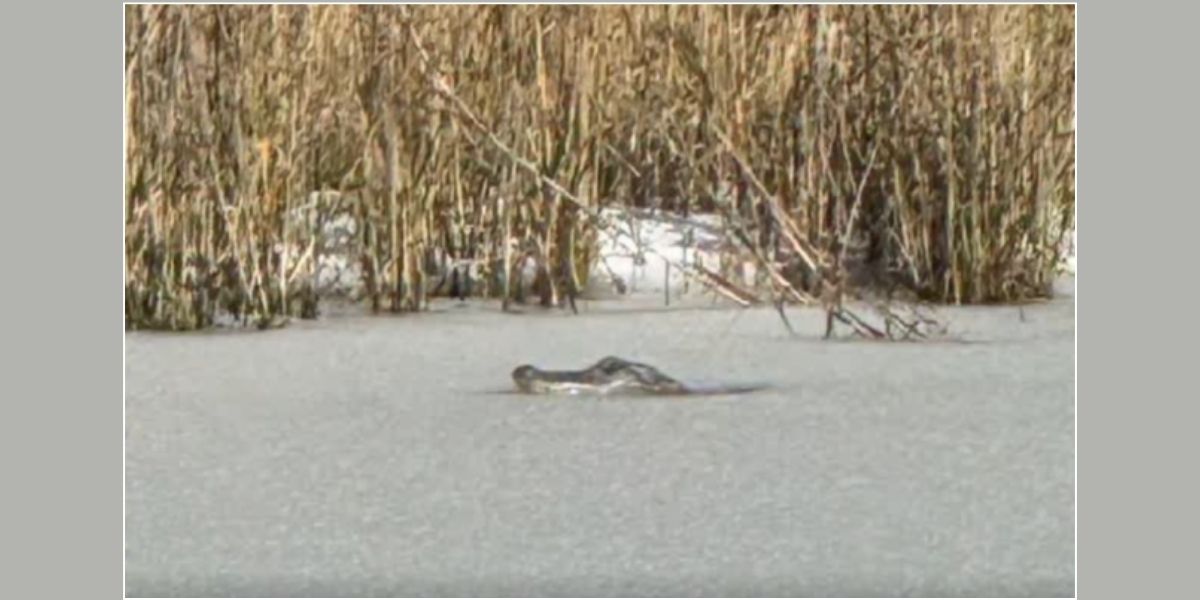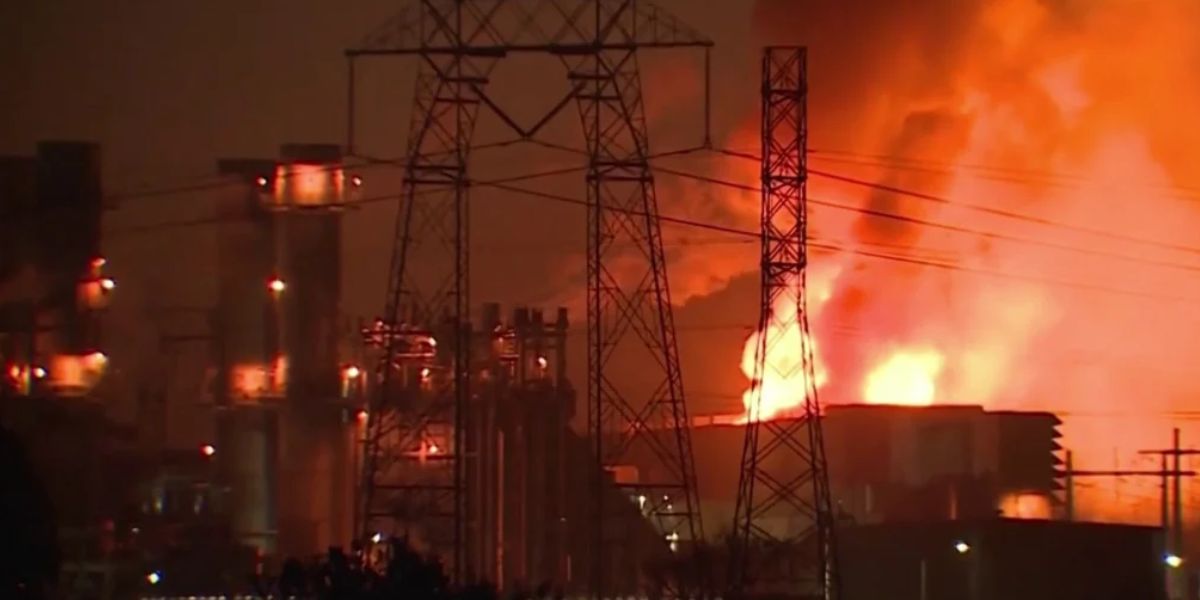The phrase “See you later, alligator!” is a fun way to say goodbye to someone, and it is commonly used in a rhyming scheme. However, for an alligator in South Carolina and many others in the Deep South, they will not be leaving their ponds anytime soon.
A video taken on Cat Island, South Carolina, just outside Hilton Head, showed an alligator trapped in a frozen pond after the South had a rare hard freeze that brought ice and snow to the area.
Experts explain that the action is a fully normal survival strategy, even though the scene may look worrying with just the alligator visible above the pond’s cold waterline.
“When temperatures drop significantly, alligators can enter a state called brumation – similar to hibernation,” officials in Beaufort, South Carolina stated. “They slow down their metabolism and become lethargic, allowing them to conserve energy when food is scarce. During a hard freeze, they often stick their snouts above the water to breathe, while the rest of their bodies become immobilized in the icy depths.”
According to the National Weather Service office in Charleston, South Carolina, which is located nearby, the area received 2-4 inches of snow and the temperature dipped to the mid-20s.
During a typical winter day in the region, the temperature usually reaches a high of approximately 60 degrees and a low of around 40 degrees.
The reptiles’ biological processes start to take effect when the mercury drops to these levels, and they continue until the return of bright days with temperatures in the 70s.
The Texas Parks and Wildlife Department states that alligators in cooler climes are dormant from October to March because they are undergoing brumation.
The reptiles may last an entire year without eating, and in other cases, they can survive for considerably longer without looking for food.
Lakes and wetlands from Texas to Louisiana and the Carolinas are not usually frozen over, but it does happen from time to time during particularly cold winters.
Wildlife organizations have not reported encountering any distressed alligators, even though there have been comparable situations in other states.
However, they have claimed that they are taking care of other animals, such as manatees and sea turtles, who also require warmer weather.
Bear Enjoys Late-Night Swim in California Family’s Pool Despite the Cold
“So, if you happen to see one of our cold-blooded friends frozen in time, don’t worry! They’re just taking a break until the sun warms things up,” South Carolina officials stated.
Bear Responsible for Pennsylvania Attack Had Rabies, Authorities Say
Because of the climate and geography, it is estimated that there are only about 100,000 alligators in Palmetto State, which is more than 10 times fewer than the number of alligators in Florida and Louisiana.




